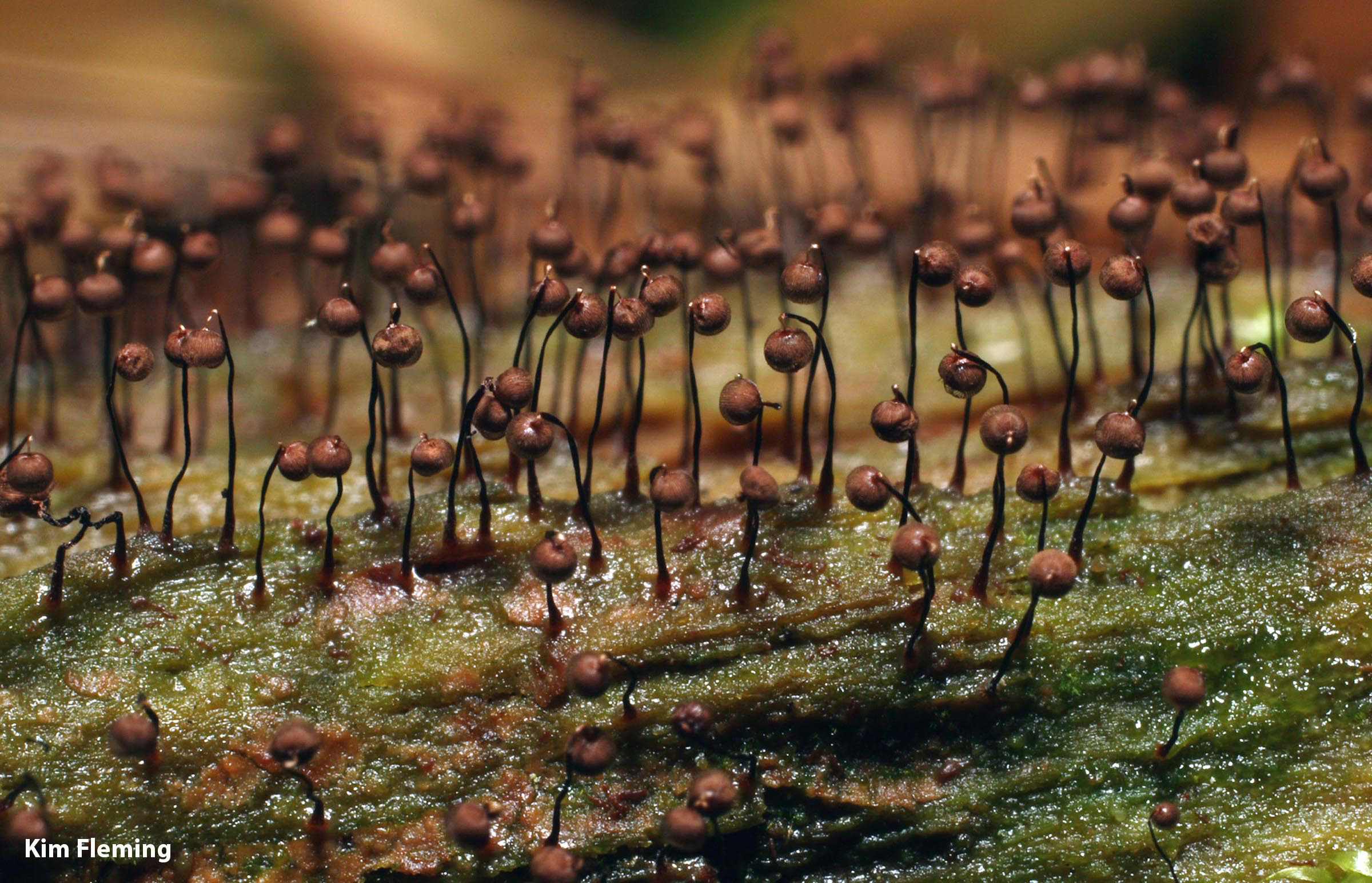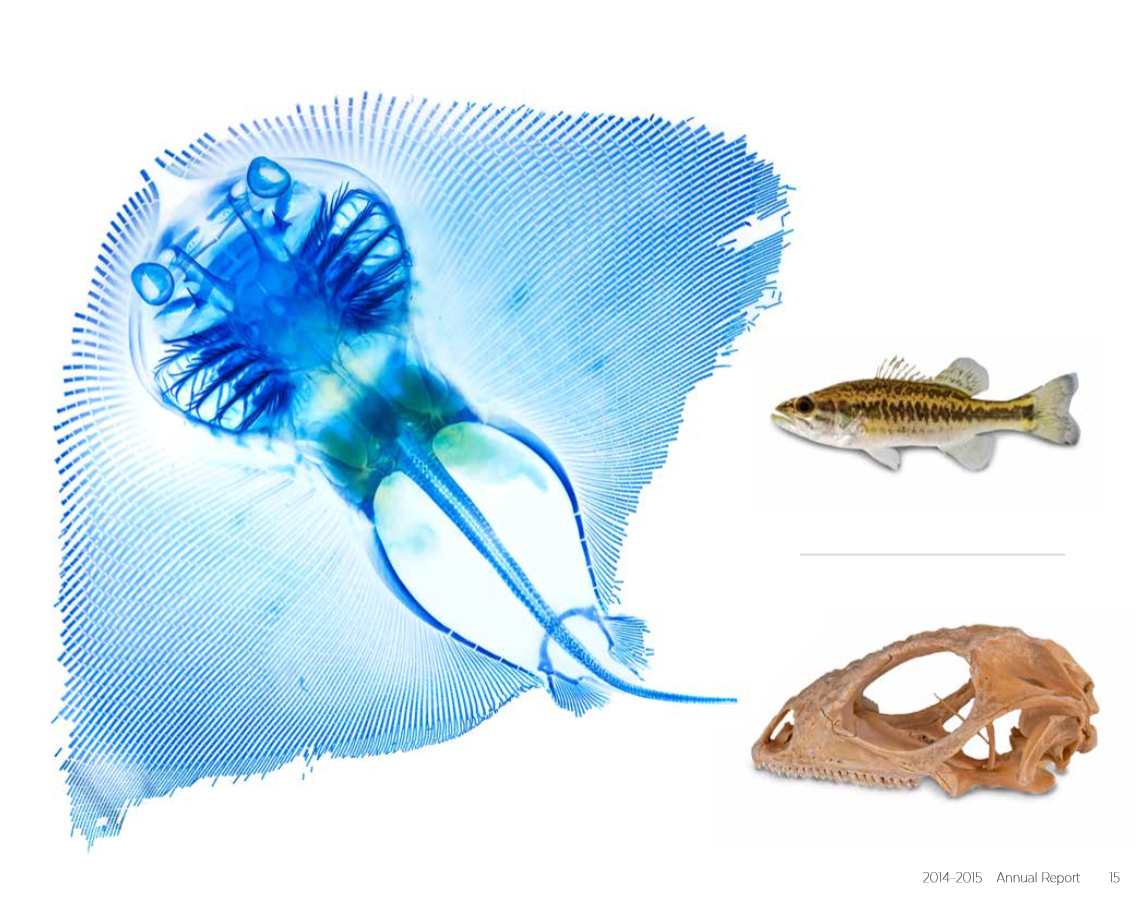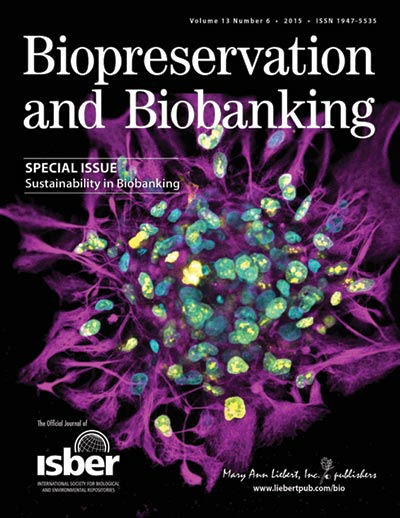Press Releases
Discovery of a hidden collection of slime molds at Chico State University

Cibraria cancellata – photo by Kim Fleming
iDigBio Featured in Florida Museum of Natural History Annual Report

The Florida Museum of Natural History recently released their 2014-2015 Annual Report that highlights the museum's research, outreach, and other achievements from the year. The report includes a two page spread on iDigBio which includes a summary of the project's outcomes, activites, and achievements from the past five years. The section can be found on pages 14 and 15 of the report.
Special Issue on Sustainability in Biobanking
Special Issue on Sustainability in Biobanking With guest editors Marianne Henderson, Daniel Simeon-Dubach, and Monique Albert.
From the Official Journal of the International Society for Biological and Environmental Repositories.
The issue includes ten articles with free access through February 1, 2016.
New Publication Gives Best Practices for Herbarium Digitization
Bringing ‘dark data’ into the light: Best practices for digitizing herbarium collections
New workflow modules will facilitate imaging and data transcription for thousands of plant specimens
Notice of Funding Opportunity: National Conservation Assessment Program
Notice of Funding Opportunity: National Conservation Assessment Program
June 29, 2015
UF receives $1.97 million NSF grant to develop paleontology network
GAINESVILLE, Fla. — With the goal of promoting life-long learning, University of Florida researchers will use a four-year, $1.97 million National Science Foundation grant to create a nationwide network of amateur and professional paleontologists.
Canada's Museum of Nature is Digitizing 3 Million Specimens. Part of an international movement to put archives online for researchers.
Canada's Museum of Nature is part of an international movement to put archives online for researchers. CLICK HERE to read full article on CBC News site.
By Max Paris Environment Unit, CBC News Posted: Jan 05, 2014 9:00 PM ET Last Updated: Jan 05, 2014 12:21 PM ET
NSF Awards Third Round of Grants to Advance Digitization of Biodiversity Collections
Press Release 13-135
NSF Awards Third Round of Grants to Advance Digitization of Biodiversity Collections
![]()
NSF Solicitation: Advancing Digitization of Biological Collections
CONTACTS
![]()
Senate Committee Passes Education Legislation, Make Sure Congress Considers Museums
.gif) |
| Senate Committee Passes Education Legislation, Make Sure Congress Considers Museums |
NSF announces Collections in Support of Biological Research (CSBR) Solicitation
The National Science Foundation has recently published its Collections in Support of Biological Research(CSBR) Solicitation.
The Collections in Support of Biological Research (CSBR) Program provides funds: 1) for improvements to secure, improve, and organize collections that are significant to the NSF BIO-funded research community; 2) to secure collections-related data for sustained, accurate, and efficient accessibility of the collection to the biological research community; and 3) to transfer collection ownership responsibilities.
NSF Solicits Proposals for Advancing Digitization of Biodiversity Collections
The National Science Foundation (NSF) has announced the availability of funding to enhance and expand digitization of and access to existing biological and paleontological collections in the United States.
The Advancing Digitization of Biodiversity Collections is seeking full proposals for its third round of funding. Proposals will be accepted for new research themes (Thematic Collections Networks) and for partnerships with existing networks (Partners to Existing Network).
NSF Awards Second Round of Grants to Advance Digitization of Biodiversity Collections
Last year, the National Science Foundation (NSF), through its Advancing Digitization of Biodiversity Collections (ADBC) program, responded to the need for greater accessibility of biological collections data by awarding four major grants.
This year, NSF funded four, additional major grants, along with two smaller awards that link to and enhance one of last year's projects.
NSC Alliance Asks Congress to Support Proposed FY 2013 NSF Budget
On 19 March, NSC Alliance submitted testimony to the Senate Appropriations Subcommittee on Commerce, Justice, Science, and Related Agencies. The testimony was in support of funding the National Science Foundation (NSF).
The testimony highlighted the contributions of NSF’s Biological Sciences Directorate (BIO) to science, education, and research infrastructure.
Florida Museum of Natural History Hosts Summit for Digitization Project
Six months after receiving $10 million from the National Science Foundation to organize digitization of the nation’s biological collections, University of Florida researchers welcomed participants to Gainesville this week for the project’s kick-off symposium.
NSF Awards Grants to Advance Digitization of Biodiversity Collections
July 8, 2011
Centuries of discovery document the diversity of life on Earth. Records of that biodiversity are, for the most part, in varied and distinct natural history collections, making assessing the information a difficult task.
Now, the National Science Foundation (NSF), through its Advancing Digitization of BiodiversityCollections program, is responding to the need for greater accessibility of biological collections data by awarding four major grants that seek to create a national resource of digital data documenting existing biological collections.
Florida State to take part in $10 million project to digitize nation's biological collections
The National Science Foundation has awarded a five-year, $10 million grant to Florida State University and the University of Florida to coordinate 92 institutions in 45 states working to digitize the nation's biological collections. FSU's Center for Information Management and Scientific Communication, in the College of Communication & Information, will work with UF's Florida Museum of Natural History and its College of Engineering Advanced Computing Information Systems Laboratory to create software and databases the nationwide participants will use to transfer and store the data.
Digitization HUB: A Collections Digitization Framework for the 21st Century
The accelerated loss of biodiversity, the "Biodiversity Crisis", is one of the leading environmental and social issues of the 21st century. Although natural biological diversity is fundamentally important to a healthy and sustainable planet, responses to the crisis have suffered from incomplete information and inadequate policies for sustainable use of natural resources. Information relevant to addressing the impact of declining biodiversity is housed within the nation's natural history and related biosystematic collections, but is inaccessible to most researchers and policy makers.
UF, FSU receive $10 million for project to digitize U.S. biology collections
GAINESVILLE, Fla. — The National Science Foundation announced today its award of a $10 million grant to the University of Florida and Florida State University to coordinate 92 institutions in 45 states working to digitize the nation’s biological collections.
Available to anyone online, the natural history data and its increased accessibility will help researchers identify gaps in scientific knowledge and could assist government agencies and others making decisions related to climate change, conservation, invasive species, biodiversity and other biological issues.





